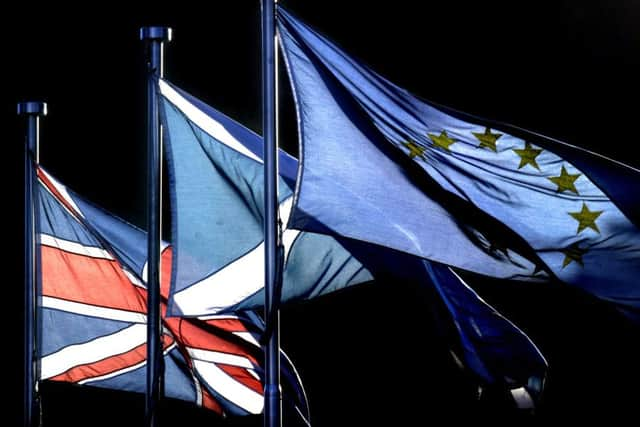Brexit: Farewell, not goodbye
At 11pm tonight, that adventure ends – and another begins.
Facing uncertainty 47 years and one month ago, then-Prime Minister Ted Heath summed up how the British people would confront the future.
“Of course, wherever there is change people have fears… But they are also very practical and when they see the need for it they face up to it,” he said, in a message that applies as much to the end of this chapter as it did to the beginning. “The only future lies in energetically seizing opportunities.”


Advertisement
Hide AdAdvertisement
Hide AdPrime Minister Boris Johnson today promises “the dawn of a new era” as the UK leaves the European Union, while writing in The Scotsman, First Minister Nicola Sturgeon asks “our friends in Europe to leave a light on for Scotland so we can find our way home.”
For Scots, whose path is the most uncertain, there is light on both horizons: which to walk towards?
In Sunderland, the first place to declare on the night of the EU referendum in 2016, sending shockwaves through the British political system with its overwhelming vote to Leave, the Prime Minister will chair a special meeting of cabinet designed to show the government’s commitment to communities where a deep sense of alienation delivered the Brexit verdict – and redrew the political map in last month’s general election.
With months – potentially years – of difficult negotiations ahead over the UK’s new relationship with the EU, Mr Johnson is expected to deliver a speech setting out his government’s key objectives next week. This evening, in a pre-recorded address to the nation, the Prime Minister will promise a future where the life chances of the first generation to grow up outside the EU are not determined by where they were born.
“Our job as the government – my job – is to bring this country together and take us forward,” Mr Johnson will say.
“And the most important thing to say tonight is that this is not an end but a beginning.
“This is the moment when the dawn breaks and the curtain goes up on a new act.
“It is a moment of real national renewal and change.
“This is the dawn of a new era in which we no longer accept that your life chances – your family’s life chances – should depend on which part of the country you grow up in. This is the moment when we begin to unite and level up.”
Advertisement
Hide AdAdvertisement
Hide AdYesterday Union flags were hung around Parliament Square and along the Mall, and a light show incorporating a countdown clock will illuminate Downing Street.
The scenes were echoed last night in Brussels, where the historic Grand Place was lit up in red, white and blue.
Brexit supporters, led by Nigel Farage – who entered the European Parliament more than 20 years ago arguing that “our interests are best served by not being a member of this club” – will celebrate their historic victory with a party outside Westminster.
Attendees have been warned not to bring alcohol or fireworks.
Labour leader Jeremy Corbyn said the country was at a “crossroads” between a “truly internationalist, diverse and outward-looking Britain” or a “close, strong and cooperative relationship with the European Union”.
He called on the Prime Minister not to “trade our principles, rights and standards to secure hastily arranged, one-sided, race-to-the-bottom trade deals with Donald Trump and others.”
Meanwhile, Ms Sturgeon will set out new details of her plan for a second Scottish independence referendum today, in the wake of a YouGov poll putting support for leaving the UK at 51 per cent - the first pro-independence majority recorded by the pollster since 2015.